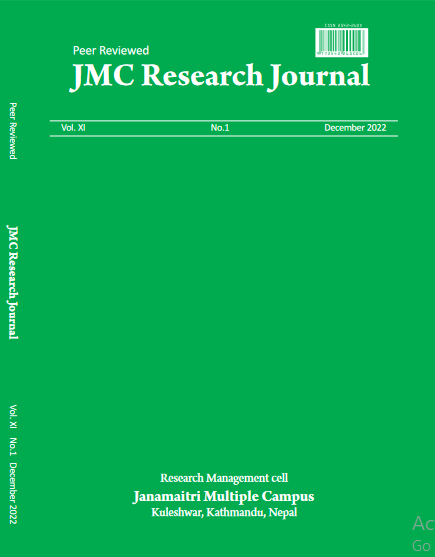Comparison of Political Inclusion in Nepal between the Elections of 2017 and 2022
DOI:
https://doi.org/10.3126/jmcrj.v11i1.59260Keywords:
Political-inclusion, constitution-rights, presence, social-groups, descriptive-methodAbstract
Political inclusion refers to political participation, representing voice and agency, and indicating whether a person's voice can be heard while trying to access services. It serves as a means of ensuring full political participation and representation for all based on equal rights. The objective of this study is to compare political inclusion in Nepal between the elections of 2017 and 2022. Secondary data has been analyzed using textual analysis, averages, percentages, and numbers. The Constitution of Nepal grants equal rights to all citizens and provides a special quota for women and other social groups to ensure equal participation. It is observed that these constitutional provisions have been fully implemented in practice when it comes to women. However, women have been allocated only the mandatory seats. Similarly, it is also noted that there is little difference in the political representation of various social groups between the two elections. In national and provincial assemblies, councils of ministries, and the central committees of national political parties, the Khash/Aarya community has a stronger presence compared to other communities, followed by women, then Janajati, and then Terai/Madhesi and Dalits. However, it should be noted that there is a majority of Terai/Madhesi representation in the central committees of the PSPN and JP, as well as in the council of ministries of Madhes Province.

